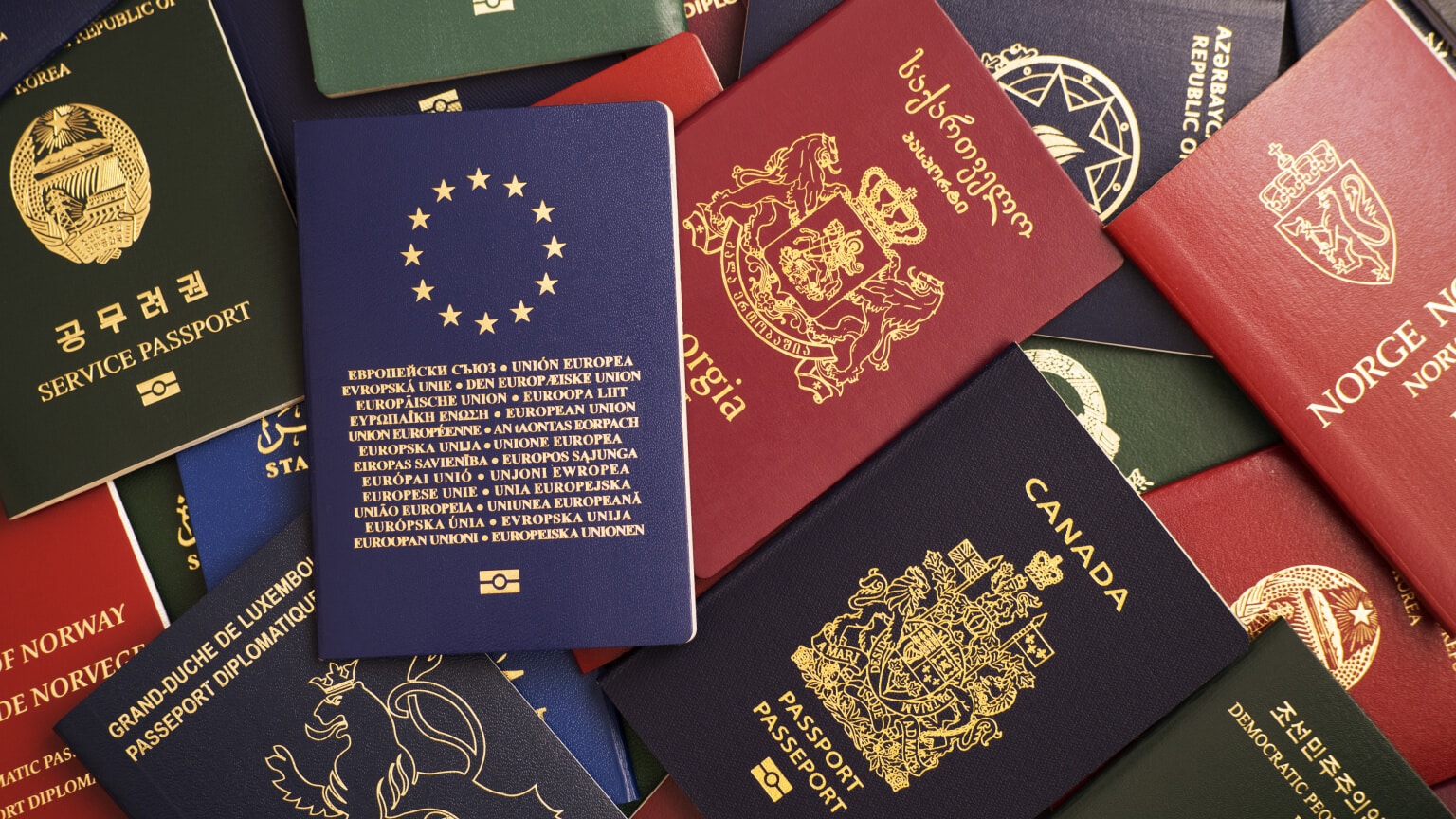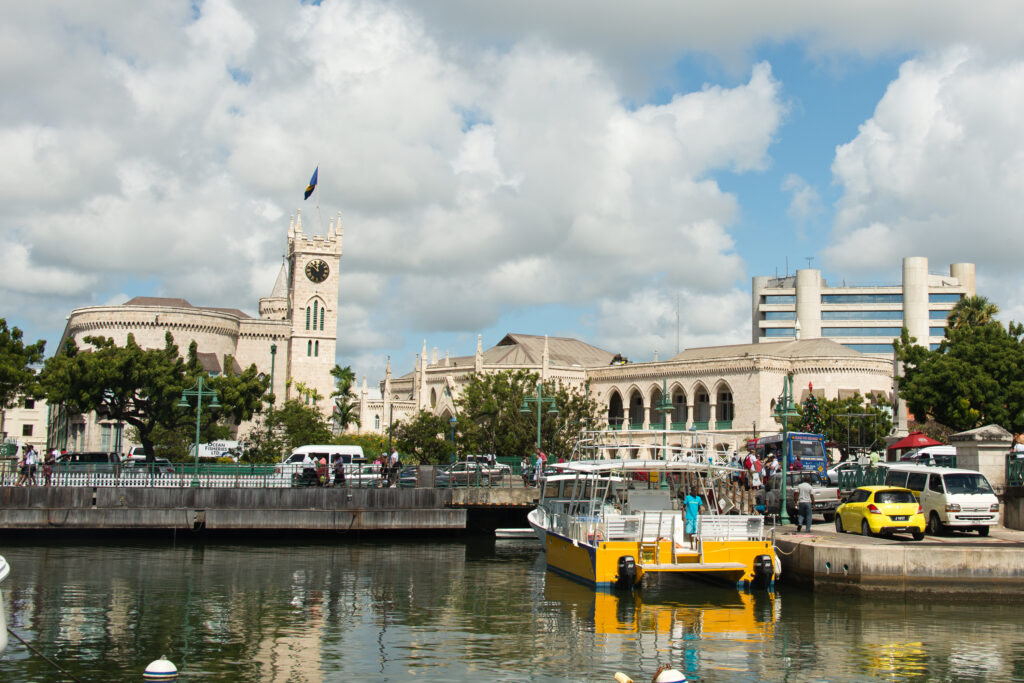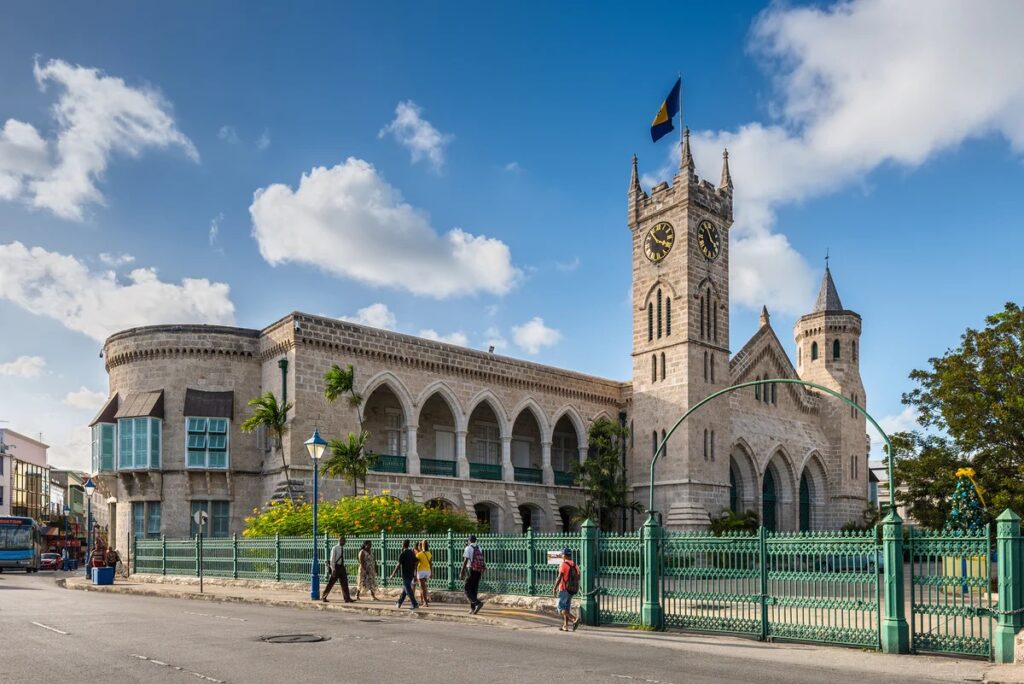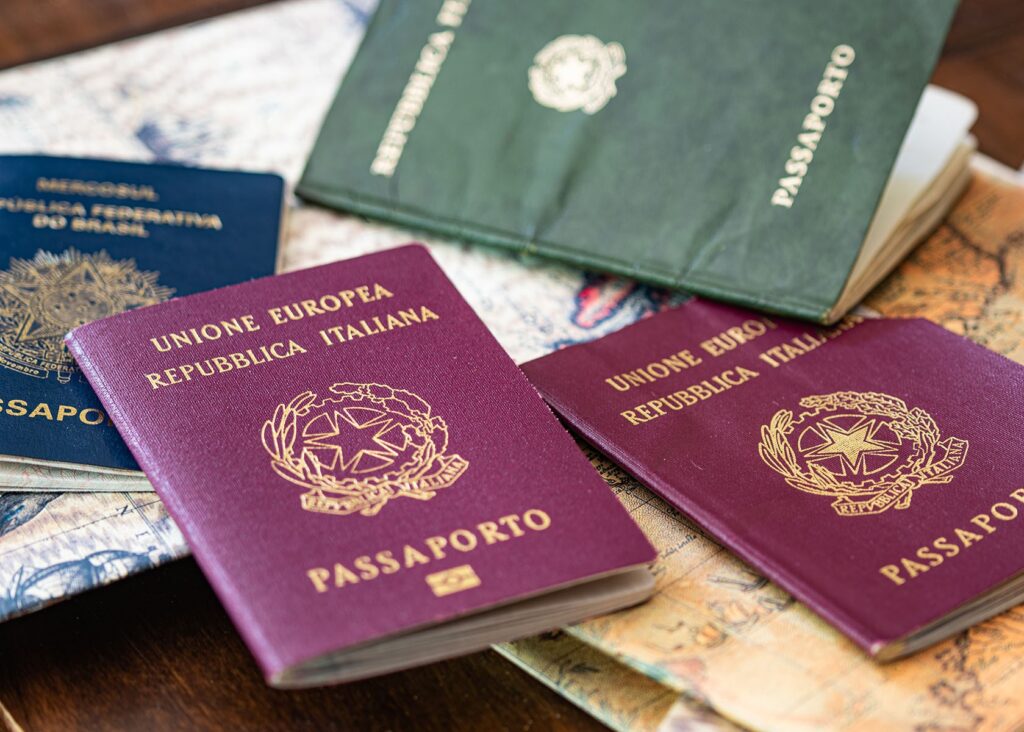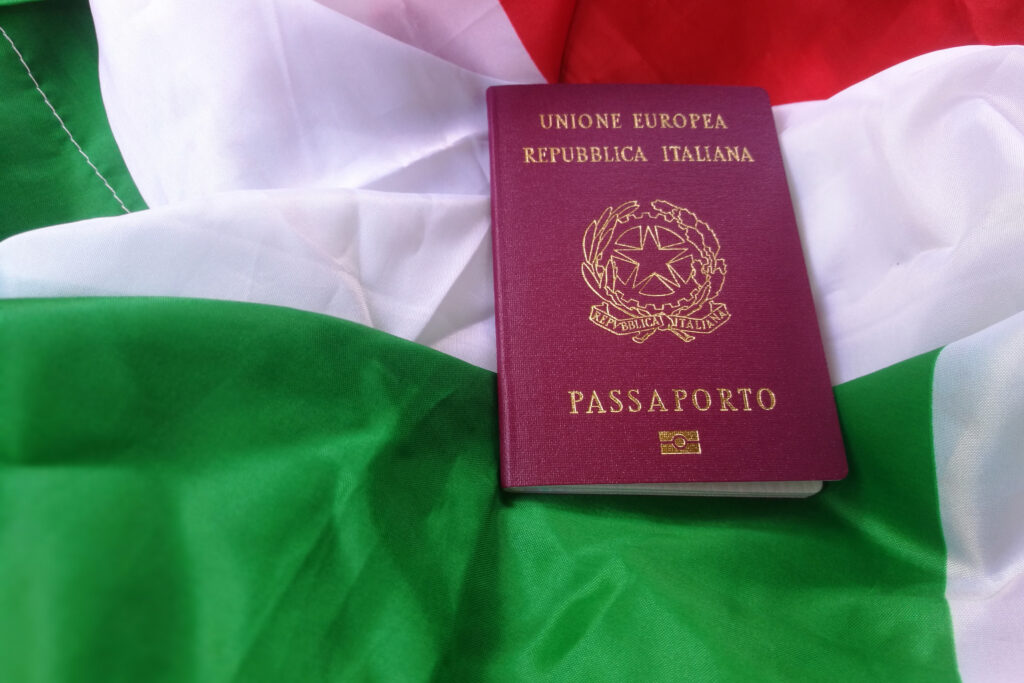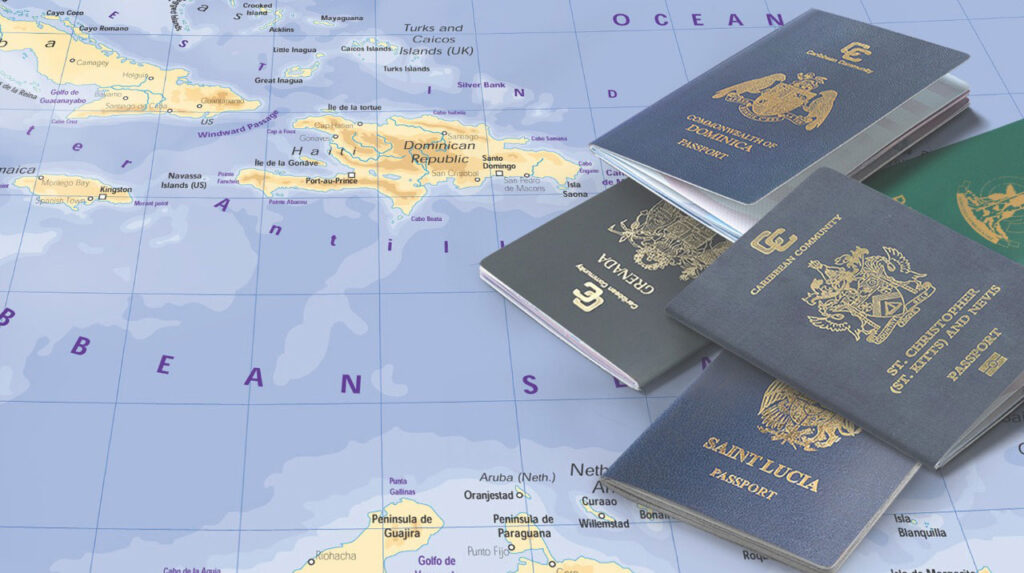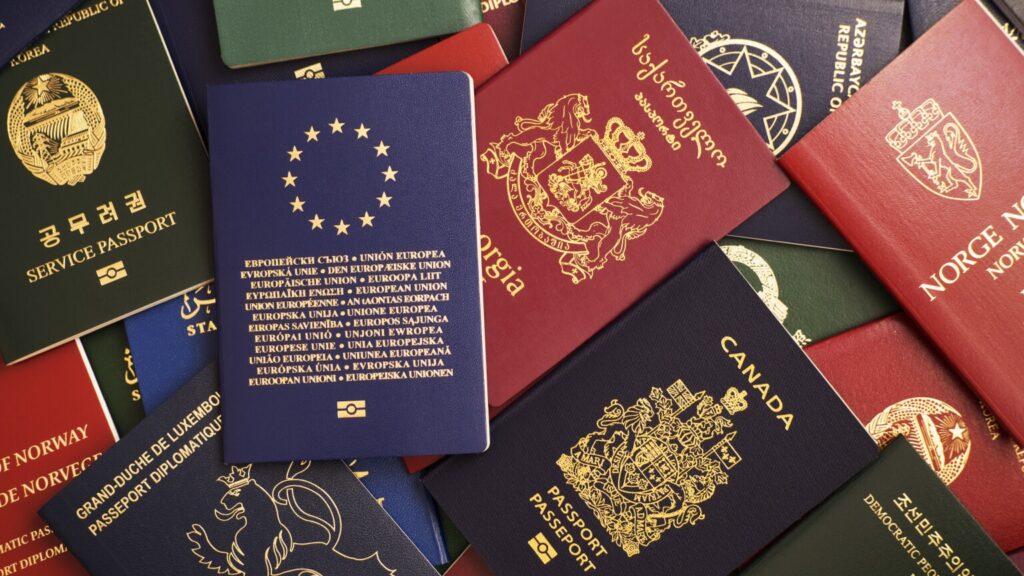Your journey to citizenship through naturalization is a path filled with anticipation and hope for many around the globe. It’s a process that symbolizes not just a change in legal status but the beginning of a new chapter in a land that promises opportunities and freedoms. Whether you’re dreaming of calling Canada your home or you’re curious about the steps involved, understanding citizenship by naturalization is your first step towards making an informed decision.
Canadian citizenship is often regarded as a privilege, sought after by individuals ready to leave behind their native land, language, and sometimes even their family, to embrace a new identity. If you’re pondering over how to weave your story into the fabric of Canada, knowing the nuances of acquiring citizenship through naturalization is crucial. Let’s dive into what it means to become a Canadian citizen, beyond just the legalities, but as a journey of transformation and belonging.
What is Citizenship by Naturalization?
When you’re considering taking the monumental step towards becoming a full-fledged member of a new country, understanding the concept of citizenship by naturalization is crucial. This process allows individuals who weren’t born within a country to still become its citizens after meeting specific criteria set by the government. Countries worldwide, including Canada, Ireland, Cyprus, Hungary, Poland, and Italy, offer paths to citizenship through naturalization, each with its unique requirements and procedures.
In Canada
Canadian citizenship by naturalization involves a straightforward yet rigorous process. If you’ve lived in Canada for at least 1,095 days out of the five years before you apply, you might be eligible. However, proficiency in English or French, along with passing a citizenship test on your rights, responsibilities, and knowledge of Canada, are also among the prerequisites.
In Europe
European countries have their own sets of rules for citizenship by naturalization. For instance, Ireland requires continuous residence in the country for five out of the last nine years, including one year of continuous residence immediately before your application. Similarly, Italy requires legal residency for ten years, whereas Hungary and Poland require eight and three years, respectively. Cyprus has a unique approach, often tying its citizenship by naturalization to investment programs, which have become a popular but contentious method of acquiring citizenship.
Regardless of the country, the main commonality is that applicants must typically demonstrate a commitment to their new country through residency, language proficiency, and often a clear understanding of the country’s culture, history, and legal framework. This process not only ensures that new citizens are well-integrated into the fabric of the society but also reaffirms their commitment to their new home.
Eligibility for Citizenship by Naturalization

Embarking on the journey towards acquiring citizenship by naturalization is a significant step. Understanding the eligibility criteria is paramount. These criteria are structured to assess your commitment and integration into your new country. Whether you’re eyeing Canadian citizenship by naturalization or aiming for the citizenship of countries like Ireland, Cyprus, Poland, Hungary, or Italy, let’s navigate the principal eligibility requirements.
Age Requirements
One of the first eligibility checkpoints is the age requirement. Generally, you must be 18 or older to apply for citizenship by naturalization independently. This standard is prevalent across many countries, including Canada, Ireland, and Italy. However, minors can still become citizens through their parents’ application process or when specific conditions are met. Thus, it’s crucial to verify the age requirements for the specific country you’re interested in.
Residency Requirements
A cornerstone of citizenship through naturalization is the residency requirement. This stipulation mandates that you must have lived in the country for a certain period before applying. For instance, Canada necessitates a physical presence of three out of the last five years for potential citizens. Similarly, Ireland requires five years of residency in the last nine years, including one year of continuous residence immediately before the application. The specifics might vary slightly from country to country, but the essence remains the same – a demonstrated commitment to residing within the nation.
| Country | Residence Requirement |
|---|---|
| Canada | 3 out of last 5 years |
| Ireland | 5 out of last 9 years |
| Cyprus | – |
| Poland | – |
| Hungary | – |
| Italy | – |
Good Character Requirement
Good moral character is a non-negotiable. This requirement ensures you’ve upheld the law and societal values of the country. You’ll need to disclose any criminal history as part of your application process. While the definitions of ‘good character’ may vary, the absence of serious criminal convictions is a consistent expectation. This ensures you’re contributing positively to the community and upholding the shared values of your new home.
Language Requirement
Effective communication in the nation’s official language(s) is crucial. This not only aids in your daily life but also reflects your integration into the societal fabric. The proficiency level required can differ, with some nations requiring a basic understanding, while others might expect more advanced skills. For Canadian citizenship by naturalization, demonstrating an adequate level of English or French is mandatory. Similarly, acquiring citizenship by naturalization in Ireland mandates proficiency in English or Irish. This requirement underscores the importance of engaging with and contributing to the community in a meaningful way.
While the path to citizenship via naturalization might seem daunting, understanding these core requirements – age, residency, good character, and language proficiency – positions you on solid grounds. Each country, be it Canada, Ireland, or others like Cyprus, Poland, Hungary, and Italy, has tailored these criteria to ensure that new citizens are well-prepared to embrace their new roles within the society.
Is Marriage Required for Citizenship by Naturalization?
When exploring paths to citizenship in various countries, you might wonder if marriage to a citizen is a necessary step. The answer varies widely depending on the country in question, but marriage is not universally required.
For instance, if you’re considering Canadian citizenship by naturalization, marriage to a Canadian citizen doesn’t exempt you from the standard process which includes residing in Canada for a certain period. Similarly, pathways to Ireland citizenship by naturalization or Italy citizenship by naturalization do not mandate marriage as a prerequisite. These countries focus more on residency duration, language proficiency, and an understanding of the country’s culture and laws.
However, being married to a citizen can indeed offer certain advantages in the naturalization process in some countries. For example, Antigua and Barbuda reduce the required period of continuous residence from seven years to just three if you’re married to a citizen. This doesn’t mean marriage is a requirement but shows how it can influence the process.
Countries like Cyprus, Hungary, and Poland have their unique sets of rules for citizenship by naturalization but marrying a native doesn’t eliminate the need to fulfill other criteria such as continuous residence or language proficiency. In Cyprus, for instance, the focus is more on the financial investment and residency, whereas, in Poland and Hungary, understanding the language and culture is crucial.
It’s essential to research the specific requirements of the country you’re interested in, as naturalization laws vary significantly. While marriage to a citizen can sometimes expedite the process or reduce residency requirements, it’s typically not the sole avenue to achieving citizenship.
Steps to Obtain Citizenship by Naturalization

Embarking on the journey towards acquiring citizenship through naturalization can be a transformative experience. It symbolizes not just a change of nationality but an embrace of new rights, responsibilities, and a commitment to integrating into the societal fabric of your chosen country. Whether you’re aiming for Canadian citizenship by naturalization or exploring options in Ireland, Cyprus, Hungary, Poland, or Italy, understanding the essential steps in the naturalization process is crucial. Let’s delve into the key phases you’ll navigate on this path.
Application Process
The first step towards achieving your goal of citizenship by naturalization begins with a comprehensive application process. Regardless of the country – be it for Canadian citizenship by naturalization or Italy citizenship by naturalization – the journey starts with ensuring you meet the eligibility requirements. These typically include criteria like having permanent resident status, residing in the country for a specified period, and proving good character.
Once you’ve confirmed your eligibility, gathering all necessary documentation is your next priority. This includes proof of identity, residency documents, and any other paperwork specific to the country’s naturalization requirements. For example, applicants for Hungarian citizenship by naturalization may need to provide evidence of Hungarian language proficiency.
After assembling your dossier, the next step is to submit your application according to the country’s submission guidelines. This could involve an online application portal or submitting paper documents to the designated national authority. It’s imperative to follow the application instructions meticulously to avoid delays or rejection.
Citizenship Test and Interview
Upon processing your application, most countries, including those offering Cyprus citizenship by naturalization, will invite you to undergo a citizenship test and interview. This crucial step assesses your knowledge of the country’s language, history, culture, and legal systems.
The citizenship test typically covers a wide range of topics from basic language skills to intricate details about the country’s governance structure. Preparing thoroughly for this test is key, as passing it is a pivotal requirement in the naturalization process. Resources and study guides are often available to help you prepare.
Following the test, the citizenship interview is your opportunity to demonstrate your commitment and integration into the country. It’s a one-on-one session with an immigration officer who will ask questions about your application, background, and reasons for seeking naturalization. Displaying a genuine understanding and appreciation of the country’s values and laws during this conversation is paramount.
Oath of Allegiance
Successfully navigating the application process and citizenship test and interview stages culminates in the final, celebratory step: taking the Oath of Allegiance. This solemn ceremony is where you’ll officially pledge your loyalty to your new country, marking the completion of your naturalization journey.
The Oath of Allegiance is more than just a formality; it’s a profound declaration of your commitment to uphold the duties and responsibilities that come with your new status. Participants are often encouraged to attend the ceremony with family and friends to share in this momentous occasion. Upon taking the oath, you are granted full citizenship rights, including the ability to vote, work, and live as a citizen of the country.
Navigating the path to citizenship by naturalization involves a series of meticulously outlined steps, from the initial application process to the meaningful Oath of Allegiance ceremony. With the right preparation and understanding of what’s expected, you’ll be well equipped to embark on this life-changing journey toward becoming a proud citizen of your chosen country.
Benefits of Citizenship by Naturalization

Acquiring citizenship through naturalization opens the door to a wealth of benefits and opportunities not available to non-citizens. Whether you’re considering Canadian citizenship by naturalization or exploring options in countries like Ireland, Cyprus, Poland, Hungary, or Italy, the advantages are significant. These benefits underscore the importance of citizenship not just as a legal status but as a gateway to fuller participation in your new country’s civic, social, and economic life.
Right to Vote
One of the most immediate and impactful benefits you’ll notice upon obtaining citizenship by naturalization is the right to vote. This privilege extends beyond merely choosing your local representatives; it’s your opportunity to shape the future of your new home country. Countries like Canada and Ireland place great emphasis on the democratic involvement of their citizens. As a naturalized citizen in these countries, your voice will count in deciding everything from local elections to national referendums. This right ensures you’re not just a resident but an active participant in the democratic process, contributing to the development and direction of the nation.
Visa-Free Travel Access
A significant advantage of obtaining citizenship through naturalization, particularly in countries with strong passports like Italy, Cyprus, and Hungary, is the ability to travel more freely around the world. For instance, Canadian citizenship by naturalization grants you a passport allowing visa-free or visa-on-arrival access to over 180 countries and territories. This level of global mobility opens up unparalleled opportunities for leisure travel, business, and education, making it an invaluable asset for frequent travellers. The freedom to explore the world without the hassle and expense of obtaining visas cannot be overstated, offering both personal and professional benefits that enhance your quality of life.
Right to Own Property
Another critical advantage of citizenship by naturalization, particularly relevant in countries like Italy and Cyprus, is the right to own property. In many parts of the world, property ownership is restricted to citizens, making naturalization the key to securing a home for yourself and your family. Owning property is not just about having a place to live; it’s about establishing deeper roots in your new country, investing in your future, and contributing to the local economy. Moreover, property ownership often comes with additional benefits, such as eligibility for certain tax advantages and access to credit. For many, this represents a significant step towards fully integrating into their new homeland and is a tangible symbol of their commitment to their new country.
By embracing the path to citizenship through naturalization, you’re unlocking a suite of benefits that enrich your life and connect you more deeply to your new country. From voting rights that empower you to have a say in your community’s future to the freedom of global travel and the ability to own property, the advantages are profound and far-reaching.
Easiest Countries to Get Citizenship by Naturalization
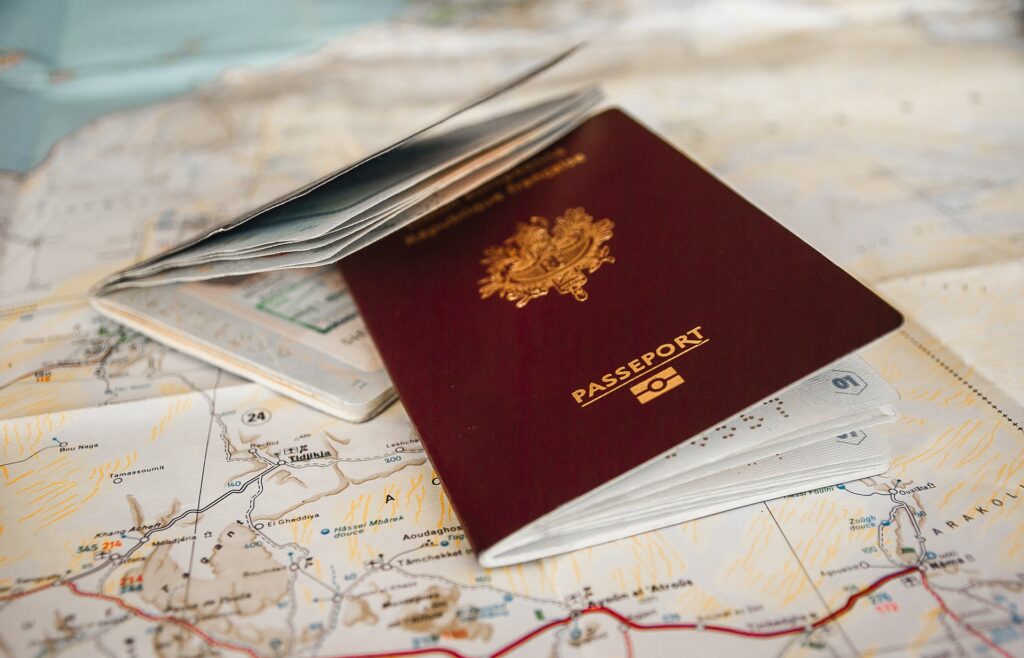
When you’re considering expanding your horizons and obtaining a second passport, the ease of the naturalization process in the country of your choice is a critical factor. Here, we delve into some of the countries that offer relatively straightforward paths to citizenship through naturalization.
Canada
Canadian citizenship by naturalization is an appealing option for many. Canada is known for its welcoming attitude and diverse culture. To apply, you generally need to have lived in Canada for at least 1,095 days within the five years right before the date you submit your application. Proficiency in either English or French, understanding of Canadian culture, history, values, and institutions, and passing a citizenship test are also required for adults.
Portugal
Portugal offers a route to Ireland citizenship by naturalization through its Golden Visa program or after five years of residency. It’s an attractive option for those seeking citizenship in a European country, giving the right to work, live, and study in any of the EU countries. Applicants must demonstrate basic proficiency in Portuguese and clear a criminal background check.
Mexico
Acquiring citizenship in Mexico through naturalization requires a mere two years of residency if you’re a Latin American or Iberian Peninsula native. For others, the residency requirement extends to five years. Additionally, applicants must prove knowledge of the Spanish language and Mexican culture, making it a relatively quick and culturally enriching pathway to citizenship.
Australia
Australia requires a permanent residency period of four years, including a one-year period of uninterrupted residency immediately before applying for citizenship. You’ll need to pass an English language test and a citizenship test based on the country’s values, history, and traditions to qualify.
New Zealand
New Zealand is another country that offers a straightforward path to citizenship. You need to have been a resident for at least five years, demonstrate an intention to live in New Zealand, understand English, and have knowledge of the country’s culture and responsibilities that come with citizenship.
Ireland
Ireland citizenship by naturalization can be obtained after five years of residency within the last nine years, including one year of continuous residence immediately before the application. Ireland requires that applicants have intentions to continue residing in the country, offering an enticing path to citizenship for those seeking to immerse themselves in Irish culture.
Dominican Republic
The Dominican Republic offers citizenship by naturalization with a relatively short residency requirement of two years. It provides a quick process for those looking to relocate to a Caribbean paradise. Knowledge of Spanish and Dominican culture is necessary to integrate successfully into the community.
Uruguay
In Uruguay, you can apply for citizenship after three years of residency if you’re single and after only two years if you’re married. Uruguay stands out for its inclusive policy, not requiring a language proficiency test, making it one of the more accessible South American countries for obtaining citizenship.
Ecuador
Ecuador requires only three years of residency before you’re eligible to apply for citizenship through naturalization. Applicants must demonstrate knowledge of the constitution and the national anthem but are not required to relinquish their original nationality, as Ecuador allows dual citizenship.
Peru
Peru offers citizenship after a residency requirement of only two years, one of the shortest periods in South America. Understanding of Spanish, as well as Peruvian history and culture, is important for integration and during the naturalization process.
Paraguay
Paraguay is known for its straightforward and fast residency to citizenship conversion, requiring only three years of residency. The process is relatively hassle-free, with minimal financial requirements, making it an attractive option for many seeking a new nationality.
Argentina
With a residency requirement of just two years, Argentina offers one of the quickest paths to citizenship in South America. Applicants must demonstrate a commitment to living in Argentina and have a basic understanding of Spanish to integrate into the community successfully.
Each country has its unique allure and set of requirements for citizenship by naturalization. Whether you’re drawn to the vibrant cultures of Latin America, the scenic beauty of New Zealand, or the multicultural tapestry of Canada, there’s a path that’s right for you. Remember, acquiring citizenship is a significant step that requires thorough research and understanding of each country’s legal and cultural expectations.
Easiest Countries to get Citizenship by Marriage

When you’re exploring pathways to citizenship by naturalization, marrying a citizen of the country you’re interested in can significantly expedite the process. While each country has its specific requirements and timelines, some offer more straightforward paths to citizenship through marriage. Below, you’ll find insights into countries where tying the knot with a local citizen could be your ticket to naturalization.
Brazil
In Brazil, if you marry a Brazilian citizen, you can apply for permanent residency which is a stepping stone to obtaining Brazilian citizenship by naturalization. Notably, the residency requirement for citizenship applicants married to Brazilians is reduced. So, you must reside in the country for only one year before applying for citizenship. Brazil’s welcoming stance towards mixed-nationality marriages makes it a popular choice for those looking to naturalize through marriage.
Spain
Spain offers a reduced residency requirement for those married to Spanish citizens. Typically, you’d need to live in Spain for 10 years before applying for citizenship. However, if you’re married to a Spaniard, this period is shortened to just one year. Remember, sufficient command of the Spanish language and culture, along with declaring allegiance to the Spanish Constitution and having no serious criminal convictions, are crucial steps in Spain’s citizenship by naturalization process.
Belize
Belize doesn’t directly offer citizenship by marriage, but being married to a Belizean significantly impacts your residency requirements. Once married to a Belizean citizen, you can apply for permanent residency. After five years of legal residency, you can then apply for citizenship through naturalization. The process showcases Belize’s appreciation for family unity and cultural integration.
Argentina
Argentina is known for its straightforward naturalization process for spouses of Argentine citizens. After being married for two years and living in Argentina, you can apply for citizenship by naturalization. The country’s emphasis on family unity plays a significant role in its naturalization policies, making Argentina an appealing option for those married to Argentine nationals.
Italy
Marrying an Italian offers a path to citizenship through naturalization, significantly reducing the usual residency requirements. After living in Italy for just three years following the marriage, eligibility for Italian citizenship opens up. Italy’s citizenship by naturalization process recognizes the bond of marriage as a strong connection to the country.
Mexico
In Mexico, marriage to a Mexican citizen offers a route to naturalization with a reduced residency requirement. Instead of the standard four years, you’re eligible to apply after only two years of marriage and residency in Mexico. This approach underscores Mexico’s commitment to family and cultural integration.
Colombia
Colombia offers an expedited path to citizenship for those married to Colombian citizens. After two years of marriage and continuous residence in Colombia, you can apply for citizenship by naturalization. This reflects Colombia’s open-arms policy to marital ties with foreigners.
Uruguay
Uruguay recognizes the value of marriage in the naturalization process. After living in Uruguay for three years if married to a Uruguayan citizen, you can apply for citizenship. This policy highlights Uruguay’s respect for matrimonial bonds and cultural assimilation.
Greece
Greece affords a simpler naturalization process for spouses of Greek citizens. After living in Greece for three years and being married for at least two, you can apply for Greek citizenship. This showcases Greece’s emphasis on family unity in its citizenship policies.
Poland
Poland offers a pathway to citizenship through marriage, requiring a continuous residency of three years while married to a Polish citizen before applying for naturalization. This is in line with Poland’s citizenship by naturalization criteria, which values cultural integration and familial relationships.
Conclusion

Embarking on the journey to citizenship by naturalization is a significant step towards integrating fully into your new country’s life. With the array of countries like Canada, Ireland, Cyprus, and more offering unique paths to citizenship, it’s clear that commitment, research, and meeting specific criteria are key to unlocking the benefits of naturalization. Remember, while marriage can be a shortcut in some instances, it’s not a one-size-fits-all solution. The rights to vote, own property, and travel visa-free are just a glimpse of what citizenship can offer, making the effort well worth it. Whether you’re drawn to the cultural heritage of Italy or the vibrant society of Brazil, understanding and respecting the legal and cultural requirements of your chosen country is crucial. So gear up, dive into the specifics, and your path to becoming a global citizen through naturalization could be smoother than you think..
Frequently Asked Questions (FAQ)
1. What is the basic eligibility criteria for citizenship by naturalization in most countries?
The eligibility criteria for citizenship by naturalization can vary significantly by country, but generally, applicants are required to have lived in the country for a certain period, demonstrate proficiency in the national language, have a clean criminal record, and show knowledge of the country’s culture and history. For example, Canada requires 1,095 days of physical presence in five years, while other countries like Italy may require up to ten years of residency.
2. Can marriage to a citizen expedite the naturalization process?
Yes, in many countries, marriage to a citizen can significantly expedite the naturalization process. For instance, Spain allows those married to Spanish citizens to apply for citizenship after just one year of residency, compared to ten years for other applicants. However, the specific requirements and benefits vary, so it’s important to check the laws of the specific country.
3. What documents are typically required for applying for citizenship by naturalization?
The documents required for citizenship by naturalization generally include proof of identity (such as a passport), legal residency status, language proficiency certificates, a criminal background check, and sometimes evidence of financial stability. Additionally, many countries require applicants to pass a citizenship test and submit documentation proving their knowledge of the country’s culture, history, and legal system.
4. How long does the citizenship by naturalization process usually take?
The duration of the citizenship by naturalization process varies widely from country to country. In some cases, it can be as quick as a few months, while in others, it may take several years. The timeframe often depends on the complexity of the applicant’s situation, the country’s legal system, and the efficiency of its immigration authorities. For example, Canada’s processing time for a citizenship application can range from 12 to 18 months.
5. Are there any countries known for having particularly lenient or strict naturalization processes?
Countries like Canada, Portugal, and Mexico are often cited for their relatively straightforward and lenient naturalization processes, especially for those who meet all the eligibility criteria and integrate well into society. On the other hand, countries like Switzerland are known for their stringent requirements, including long residency periods and community approval processes. Each country has its unique approach, reflecting its immigration policy and attitude towards new citizens.
Learn More
Offshore Freedom™ is a boutique coaching and consulting firm that helps investors and entrepreneurs live and invest internationally. We help our clients grow their businesses, pay less taxes, buy more real estate, and take advantage of global residency and citizenship by investment programs worldwide.
Schedule a 1 on 1 consultation with Dan Merriam, and let us help you design the life of your dreams and live the Offshore Freedom™ lifestyle. Ask questions and get answers about international real estate, tax planning, offshore banking, second residencies, citizenship by investment, lifestyle design and more.
This article is for informational purposes only; it should not be considered financial, tax planning, investment or legal advice. Consult a certified financial or investment professional in your jurisdiction of interest before making any major financial or investment decisions.
Writer in Tax Reduction, International Tax Planning, Travel, Citizenship by Investment, The Caribbean, Citizenship by Naturalization, Second Passport, Italy, Portugal, Ireland, US Tax, Second Residence, Real Estate Investing, Asset Management, Lifestyle Planning, Countries with the Lowest Taxes, Company Formation, Offshore Banking, Asset Protection, Technology, Entrepreneurship

